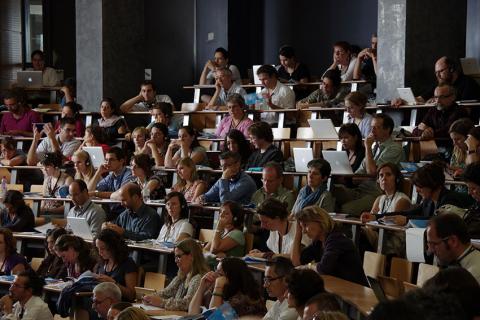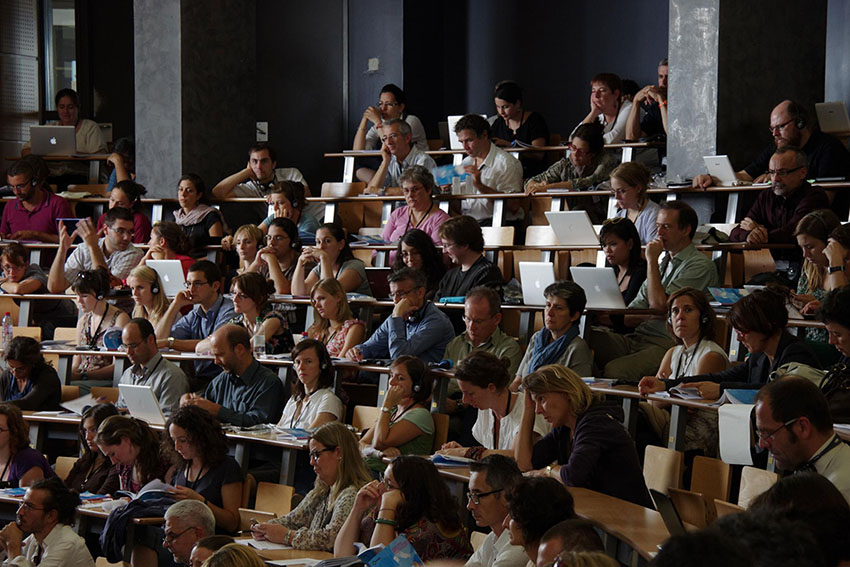
Only three months to go before Science&You!
No less than 180 communicators will be lined up to hold workshop sessions, from the 2nd to the 5th June in Nancy’s Centre Prouvé. In the meantime, here is an exclusive peek at some of the main themes which will be covered:
- Science communication and journalism. Abdellatif Bensfia will focus on the state of science communication in a country where major social changes are playing out, Morocco, while Olivier Monod will be speaking about “Chercheurs d’actu” (News Researchers), a system linking science with the news. Finally, Matthieu Ravaud and Fabrice Impériali from the CNRS (Centre National de Recherche Scientifique) will be presenting “CNRS Le journal”, the new on-line media for the general public.
- Using animals in biomedical research. This round-table, chaired by Victor Demaria-Pesce, from the Groupement Interprofessionnel de Réflexion et de Communication sur la Recherche (Gircor) will provide an opportunity to spotlight one of society’s great debates: the use of animals in research. Different actors working in biomedical research will present their point of view on the subject, and the results of an analysis of public perception of animal experimentation will be presented. What are the norms in this field? What are the living conditions of the animals in laboratories? How is this research to be made legitimate? This session will centre on all these questions.
- Science communication and the arts. This session will cover questions such as the relational interfaces between art and science, with in particular the presentation of “Pulse Project” with Michelle Lewis-King, and the Semaine du Cerveau (Brain Week) in Grenoble (Isabelle Le Brun).
Music will also be there with the talk by Milla Karvonen from the University of Oulu, who will be speaking about the interaction between science and music, while Philippe Berthelot will talk about the art of telling the story of science as a communication tool.
- Science on television. This workshop will also be in the form of a round table, with representatives from TVV (Vigyan Prasar, Inde), and Irene Lapuente (La Mandarina de Newton), Mico Tatalovic and Elizabeth Vidal (University of Cordoba), discussing how the world of science is represented on a mass media like television. Many questions will be debated, as for example the changing image of science on television, its historical context, or again, the impact these programmes have on audiences’ perceptions of science.
To learn more, you will find the detailed list of all the workshops and plenaries in the provisional programme on-line.
Interested? Registration for the “Journées Hubert Curien” conference, with plenaries and workshops, and the “Science and Culture” forum is ongoing.
Don’t wait any longer: you’ll find the registration form here.

